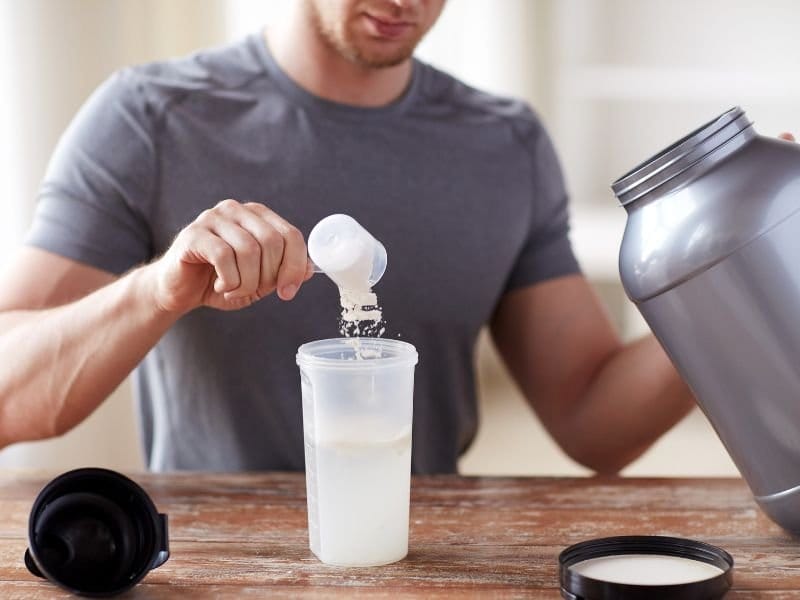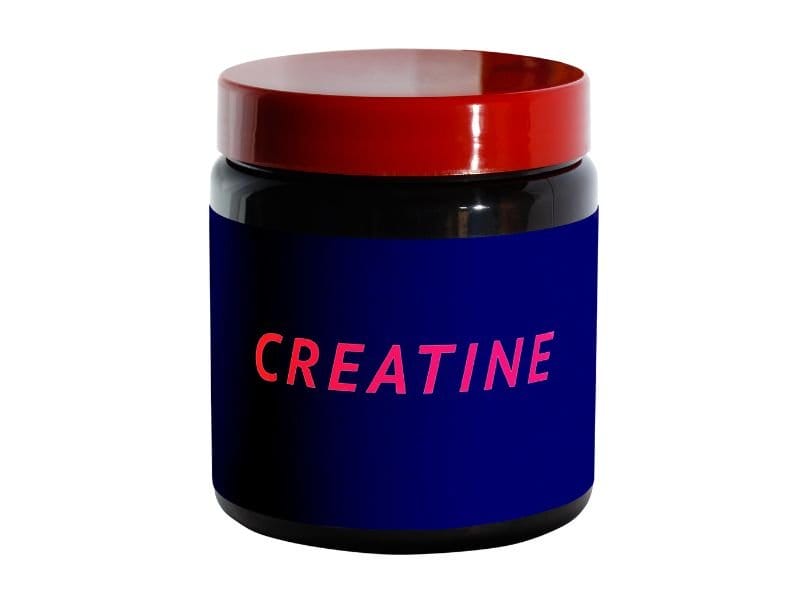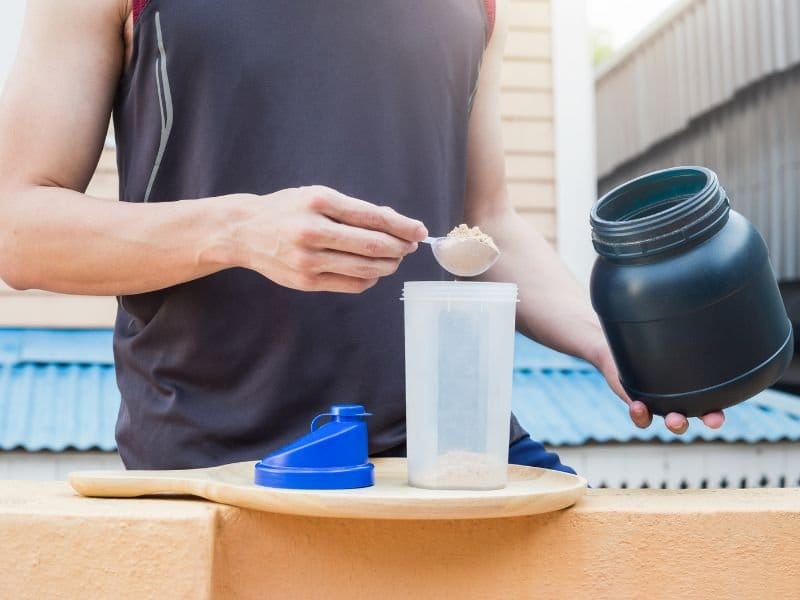Fasting is a practice that has been around for basically as long as humans have, and many religions practice some form of fasting at specific times in the year. During Ramadan, for example, Muslim people fast during daylight hours and then come together in the evenings to spend time together, reflect, and enjoy celebratory meals.

Religion is not the only reason that people fast, however, and fasting for health and weight loss reasons has become increasingly popular within the fitness industry over the last few years. You’ve probably heard of the term “intermittent fasting” and may even be practicing it yourself if you’ve found yourself on this page.
Intermittent fasting describes a pattern of eating and abstaining from eating (or consuming minimal calories) during different periods of the day and the emphasis is not so much on what you eat, but rather when you eat.
There are many suggested health benefits of intermittent fasting as well as several different time patterns that people follow, which we’ll look at briefly a little later on. For now, let’s explore creatine’s role in fasting and whether continuing to take creatine supplements will affect your overall fast.
Creatine is a very popular supplement which many people take to improve their physical performance and build skeletal muscle mass. As it is a supplement aimed at enhancing your fitness and overall health, many people who take it will also be people who practice intermittent fasting or other forms of fasting.
Because creatine performs optimally when used consistently, continuing to use it whilst trying to fast might become a concern.
People also generally take creatine supplements before working out and it’s likely that people undergoing intermittent fasting will also be working out during fasting windows, which will mean having to take creatine during these windows.
To put your mind at ease, most forms of creatine supplementation contain zero calories and do not interfere with your body’s insulin response so will therefore not impact or negate your fasting efforts.
As far as creatine during fasting is concerned, majority of the time, you won’t need to worry about breaking your fast. That said, there are some exceptions to this general rule which we’ll look at briefly now.
Depending on the type of creatine supplement you take, be it in tablet, liquid, or powdered form, you may need to make some alterations to the way you usually consume it. For example, if you’re used to chasing liquid creatine with fruit juice or other calorific beverages, you may need to switch to water instead in order to minimise caloric intake.

Some liquid creatine options will come in sweetened or flavoured solutions which will contain sugar and other ingredients which are not fast-friendly. If you take a supplement like this, you’ll need to take it during your feeding windows rather than fasting windows.
If you like to mix creatine powder with juice or milk (dairy or plant-based), you’ll also need to change things up a bit and mix it with water instead in order to keep your fast intact.
You may also need to be aware that certain creatine powders may have additives or fillers in them which may contain calories, so whilst the creatine itself is fine to take during fasting, there may be additional ingredients which are not.
It’s always best to take the purest creatine supplement that you can so ones with additional fillers are probably best avoided anyway!
If you wanted to be 100% sure that your creatine intake was not going to impact your fasting, you could always switch to taking it during one of your eating windows, however in most cases, this wouldn’t be strictly necessary.
Whether you’re fasting or not, you should make yourself aware of the most trusted and reliable type of creatine on the market as well as how much of it you should ideally be taking in a day.
Regardless of if you begin intermittent fasting during a loading phase or maintenance phase, the amount of creatine supplementation that you take should remain the same as what you would take if you weren’t fasting.
The most popular form of creatine is creatine monohydrate and it is widely trusted due to the fact that it is the most vigorously tested form of the supplement and has yielded the most reliable results. It is the form that most closely resembles the creatine that’s naturally produced by our bodies and is most often the cheapest option on the market.
In terms of dosage, if you’re in the loading phase, you’ll ideally need to be ingesting between 20 and 25g of creatine per day, whereas in the maintenance phase thereafter, the average person takes between 3 and 5 grams per day. These measurements can be carried through to fasting periods too.
If you take creatine supplements, there’s a decent chance you might also take other types of supplements to target different health and fitness areas.

There are also plenty of supplements that aid cosmetic areas as well as health and fitness. If you do take more than one supplement, you should be careful to ensure none of them will break your fast, even if creatine isn’t a worry.
Some popular supplements that will break your fast include:
Even if they won’t break your fast if you take them during a fasting window, there are some supplements that work best when digested with food or might cause digestive issues if taken on an empty stomach.
If your digestive system is particularly sensitive, you might have to be extra careful with fasting as you may be more susceptible to gastrointestinal problems whilst fasting.
Some people believe that fasting starts as soon as you stop eating for your fasting period but in actual fact, our bodies are used to not consuming food for a few hours, even when we aren’t fasting (in other words, we’re never eating constantly – we generally have set meals which are a few hours apart).
The first few hours of fasting are therefore fairly routine in what your body will feel like and be doing. During these first few hours, your body begins breaking down glycogen stored in the liver and muscles into glucose which will supply your cells with energy. This process happens to us all the time, even if we aren’t doing intermittent fasting.

After 5 or 6 hours of fasting, your body starts entering the ketosis stage of metabolic processes, whereby energy is no longer provided by glucose but rather by ketones in your blood. Ketones are chemicals which break down fats, rather than carbohydrates.
In some ways, this stage is when fasting truly begins, or at least, this is when fasting begins to have tangible results. This is the key “weight loss” stage. As you have now been without food for a good few hours, your digestive system is able to take a bit of a break and recuperate from its prior efforts before you reintroduce food during periods of eating.
If there were no proven positive results of intermittent fasting, no one would do it! The fitness community has long since sworn by intermittent fasting for achieving several health and fitness goals such as:
This is not an exhaustive list of course, but it does cover a good few of the most sought-after health benefits. Depending on the intermittent fasting method you follow (ie 16:8, 14:10, 20:4) you might find that the different benefits take effect to different degrees.
After a fasting session, it’s important to take it slow and steady when reintroducing food to your body as you don’t want to trigger any gastrointestinal discomfort or other problems. There are several things you can do to make sure you’re being kind to your body when breaking a fast, including:

If you find that intermittent fasting is too strenuous on your body, you can always opt for a shorter fasting time and see how it goes!
In 9 times out of 10, creatine supplements are absolutely fine to take during fasting and will not break your fast. Creatine has no calories and does not prompt an insulin response in the body, so the effects of fasting would not be cancelled out by taking it during fasting windows.
Creatine’s beneficial impact on muscle building and stamina enhancing may even help you to stay active and fit during fasting as the creatine will supply your muscles with more energy that it may not be getting directly from food.
As with all supplements, you must take some caution to ensure there are no additional ingredients in your creatine that may break your fast, but typically speaking, you’re good to go! And remember, there’s no limit to how much water you can drink whilst fasting so stay hydrated and fast away!